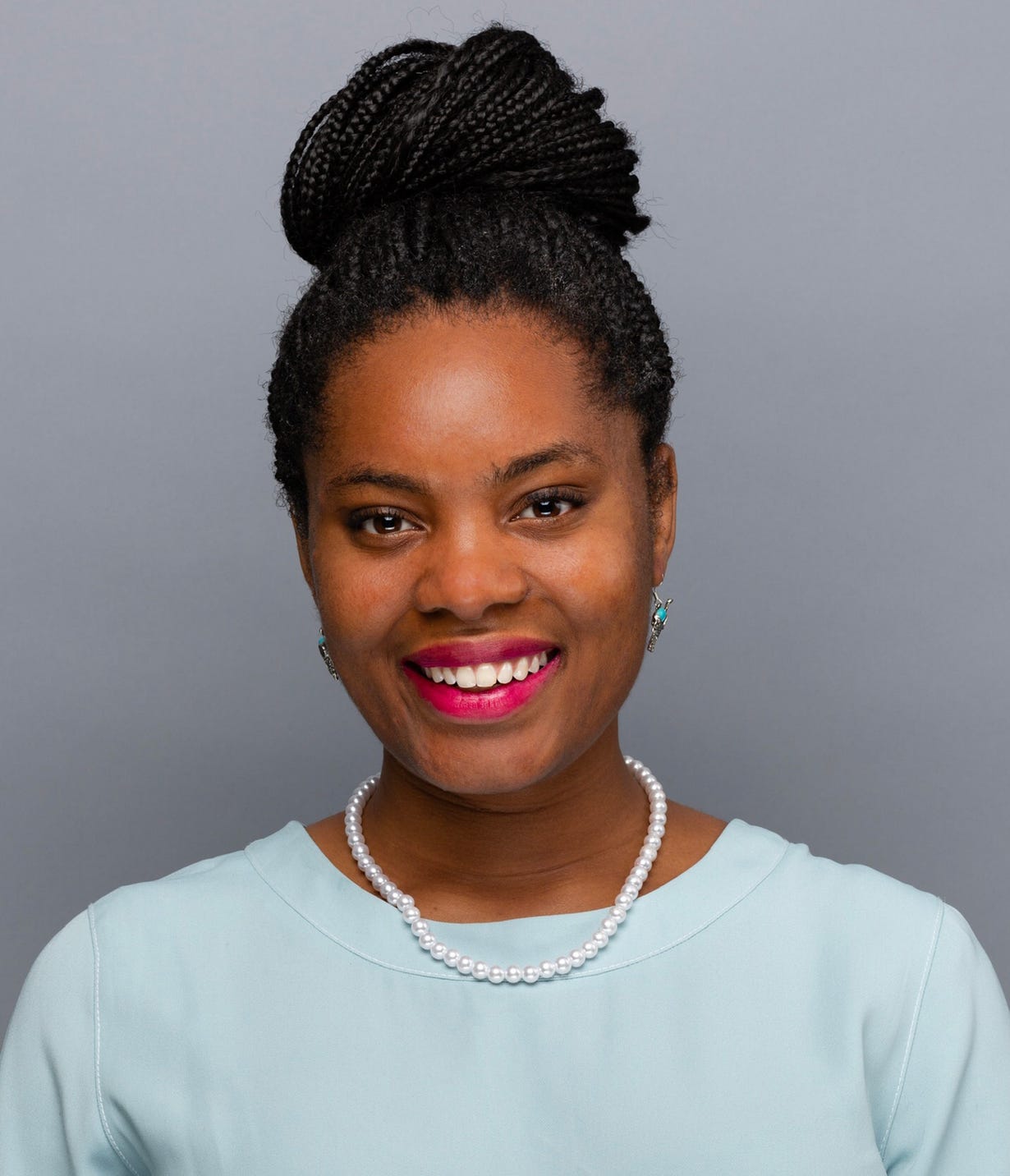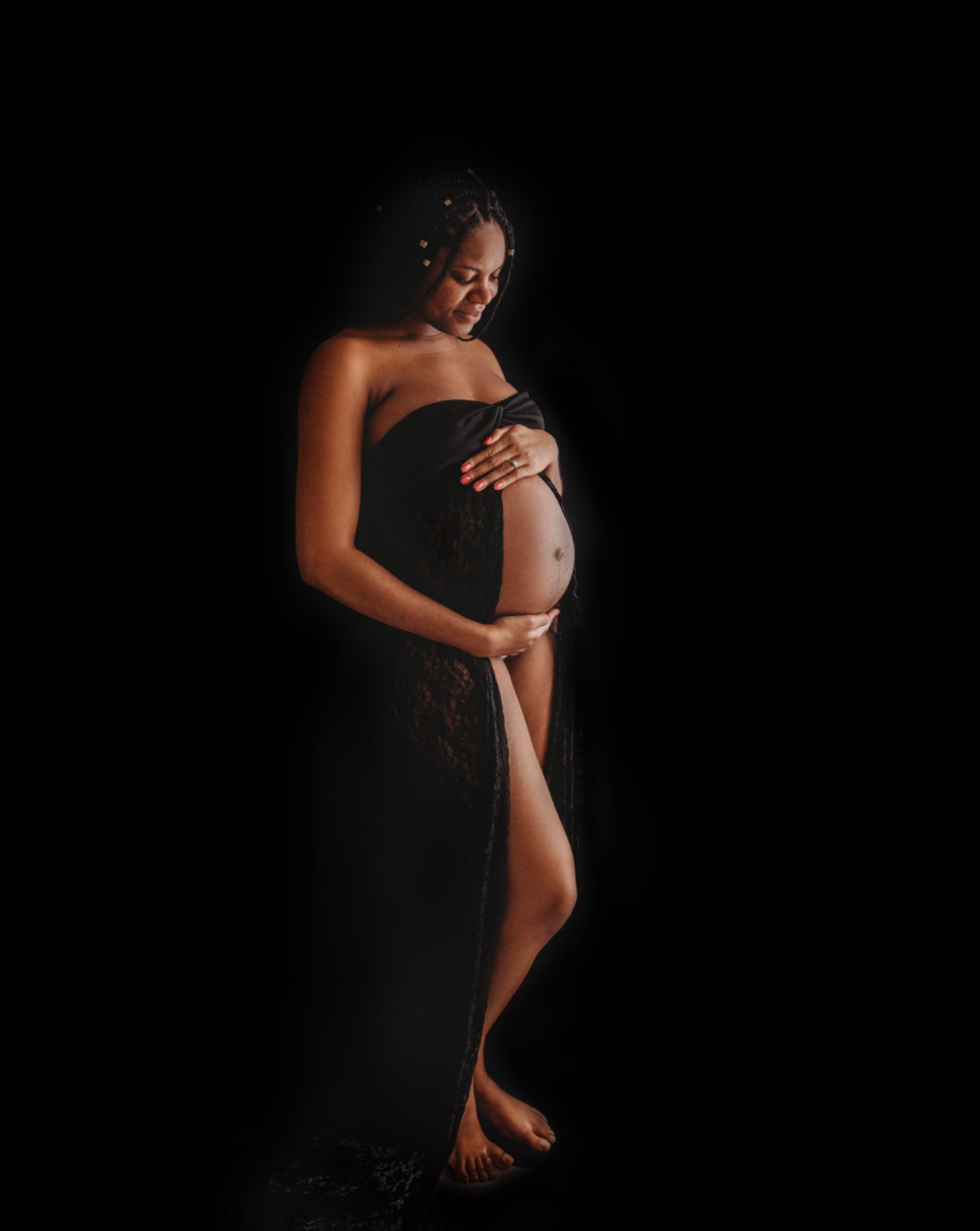I survived childbirth during three pandemics – COVID, racism, Black maternal health crisis

As with many other women in the final stages of childbirth, there was a point at which I knew I needed medication to help manage my pain. So I requested an epidural, and an anesthesiologist arrived within minutes.
But the doctor seemed rushed, which made me nervous. So, as he prepared to insert his needle into my spine, I asked if he could explain the process. My nurse reiterated my request for informed consent. The anesthesiologist ignored our entreaties, demanded that I stay still and made an unsuccessful first attempt to administer the epidural.
I cried out in pain. He reprimanded me. I felt his blue eyes glaring at my Black body. My nurse and husband huddled and held me. I cried again. Sensing my deep anxiety and devastation, my nurse halted the process and called for another anesthesiologist.
The irony, if that’s what you would call it, is that I am a maternal health and equity researcher. I knew I could experience such problems as a 28-year-old, Black, first-time mother. I am a reproductive justice educator. A teacher of Black women’s health. I also have top-notch health insurance and no pre-existing conditions.
Making medicine work for Black America: How Black students will answer the call for reform
Yet even with these privileges and knowledge, I wasn’t prepared to face the possibility of my own premature death, because birthing during the three pandemics of COVID-19, anti-Black violence, and the Black maternal health crisis meant that I had to reckon with my own mortality at the very moment I celebrated new life.
A horrifying, deadly reality
The realities for pregnant Black women in the U.S. are horrifying, of course. Black women are three to four times more likely to die from pregnancy-related causes than white women. The heightened risk of pregnancy-related death for Black women spans income and education levels. The inadequate care Black women often receive is rooted in unconscious and conscious bias, structural racism, and gender discrimination.
Studies have also shown that systemic and societal racism can create psychological stress, resulting in chronic conditions such as hypertension and preeclampsia, two of the leading causes of maternal deaths. This is excessive “vigilance,” or the chronic stress and psychological burden of anticipating racism. (Hypertension is just one of the measurable health risks that stem from structural racism, alongside poor neighborhood quality, mass incarceration, and high unemployment.) The experience of living with and witnessing racialized violence only heightens the bodily and mental impacts of racism and violence.
Black medical leaders: Coronavirus magnifies racial inequities, with deadly consequences
What’s more, research I recently conducted and plan to publish on the relationship among gender, class, racism and Black maternal health outcomes also reveals that Black women’s experiences of reproductive coercion heightens the emotional and physical toll of medical racism, neglect, and bias at the hands of medical providers.
Coercion alone is among the abusive behaviors that can be difficult to track. It often involves verbal abuse and condescending behaviors, attempts to control someone’s reproductive health and decision-making, forced medical procedures and a dismissal of self-advocacy. Even as there is growing awareness of U.S.’s maternal health crisis, the compounded trauma of navigating multiple forms of violence while being pregnant often goes unnoticed.
Jallicia A. Jolly in Amherst, Massachusetts, in September 2020. (Photo: Family handout)
And while reproductive coercion is one of the underlying causes of the racial disparities in maternal health outcomes, it seems clear that anti-Black racism and COVID-19 only make things worse.
The COVID-19 pandemic simply laid bare these pre-existing inequities. Describing these overlapping disparities in August 2020 as “the perfect storm,” a researcher from the Harvard T.H. Chan School of Public Health predicted that maternal mortality among Black women in the United States will increase during the pandemic. She cited the already disproportionate maternal mortality rates among Black women and the burden of COVID-19 in Black communities.
Data on Black pregnancy and maternal outcomes over the last year is not yet available, but circumstances are stacked against Black women.
Say their names
Even as our awareness of Black women’s premature death by COVID-19, pregnancy-related complications, and police brutality increases, we know little about the cumulative impacts of these traumas and their experiences. Current interventions regarding Black maternal health are incomplete and short-sighted because they do not adequately include their voices. The exclusion of Black women’s experiences limits deeper understandings of the tangible and intangible ways Black women navigate trauma and racism throughout and beyond the clinical encounter.
In looking back at my own experience giving birth to my healthy daughter, I am reminded of the stories of Black women who have received substandard care in health care systems and whose needs are deprioritized – and didn’t live to tell their own stories.
A wake up call to medical schools: We need more Black doctors. Here are 5 ways medical schools can help ease the shortage.
There was Sha-asia Washington, 26-year-old Black woman who died after an epidural was administered during the delivery. Shalon Irving, a 36-year-old Black epidemiologist, collapsed and died from complications of high blood pressure three weeks after giving birth, even after she repeatedly told her health care providers she didn’t feel well. And there was 26-year-old Amber Rose Isaac, who died alone after an emergency a caesarean section. Before her death, she tweeted her experience of “dealing with incompetent doctors.”
Jallicia A. Jolly's pregnancy photo shoot in Leverett, Massachusetts, in November 2020. (Photo: Angela Roberts)
Taking a hard and honest look at the lives and deaths of these Black women who were victims of structural violence means coming to terms with illness, inequality, and violence while navigating pregnancy, birth, and the collective labor of sustaining Black life. It means disrupting a notorious legacy of racial violence, gender discrimination, and medical racism.
Say the names and tell the stories of Sha-asia Washington, Shalon Irving and Amber Rose Isaac. Think of my experiences giving birth to my daughter, since they are far from uncommon.
Sharing these stories means confronting today’s realities, and doing so is the first step in effectively addressing the embodied effects of structural conditions undermining the holistic well-being of Black women today.
Jallicia A. Jolly is a postdoctoral fellow and an incoming assistant professor in American Studies and Black Studies at Amherst College. She is a researcher of the transnational politics of race, gender, sexuality and reproductive justice throughout the African diaspora. Jolly is also a writer of Dr. Shalon’s Maternal Action Project (DSMAP), an Atlanta-based nonprofit created in honor of Shalon Irving that aims to increase awareness of the Black maternal health crisis. Follow her on Twitter: @jallicia
You can read diverse opinions from our Board of Contributors and other writers on the Opinion front page, on Twitter @usatodayopinion and in our daily Opinion newsletter. To respond to a column, submit a comment to [email protected].
Source: Read Full Article


